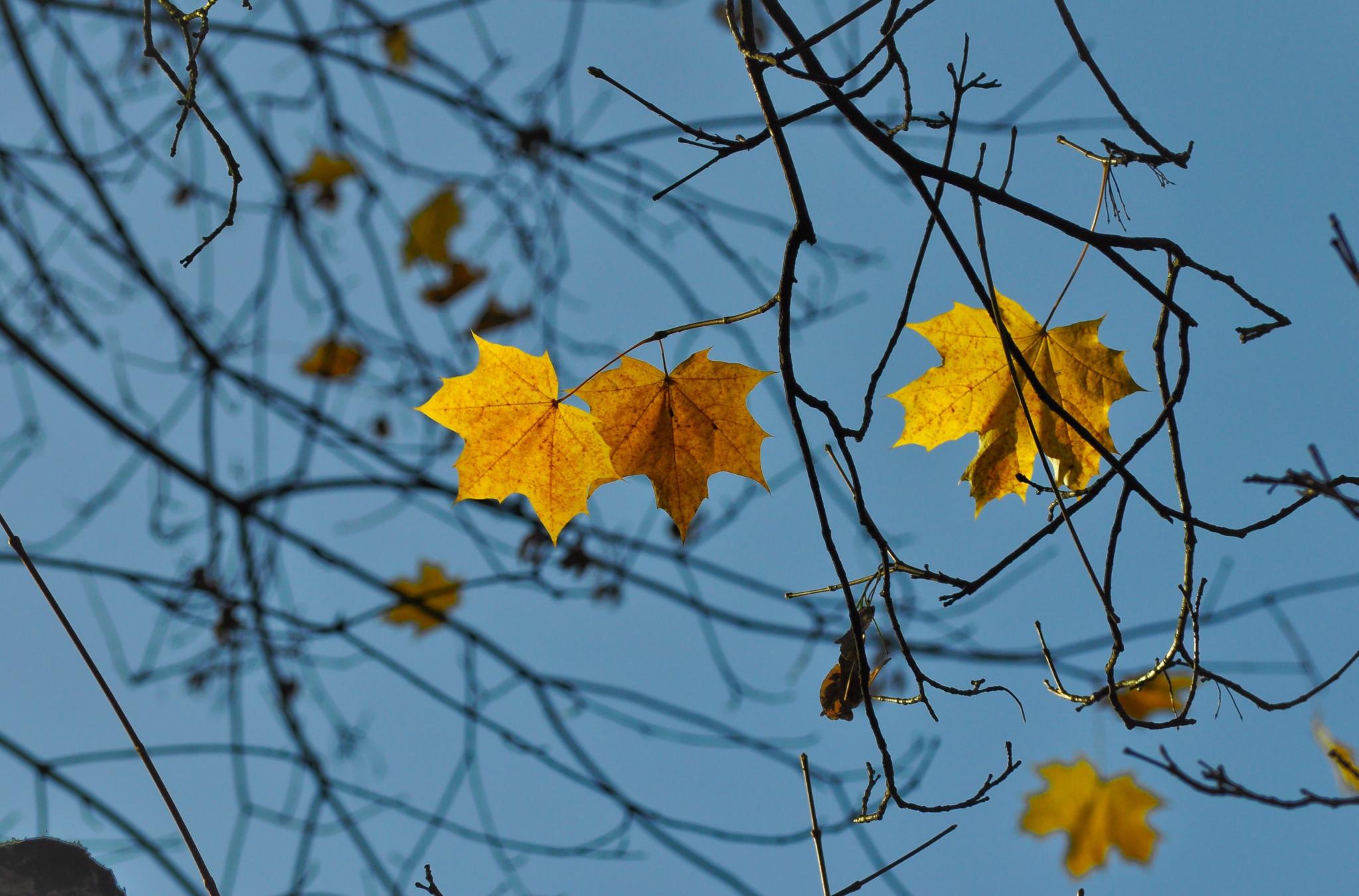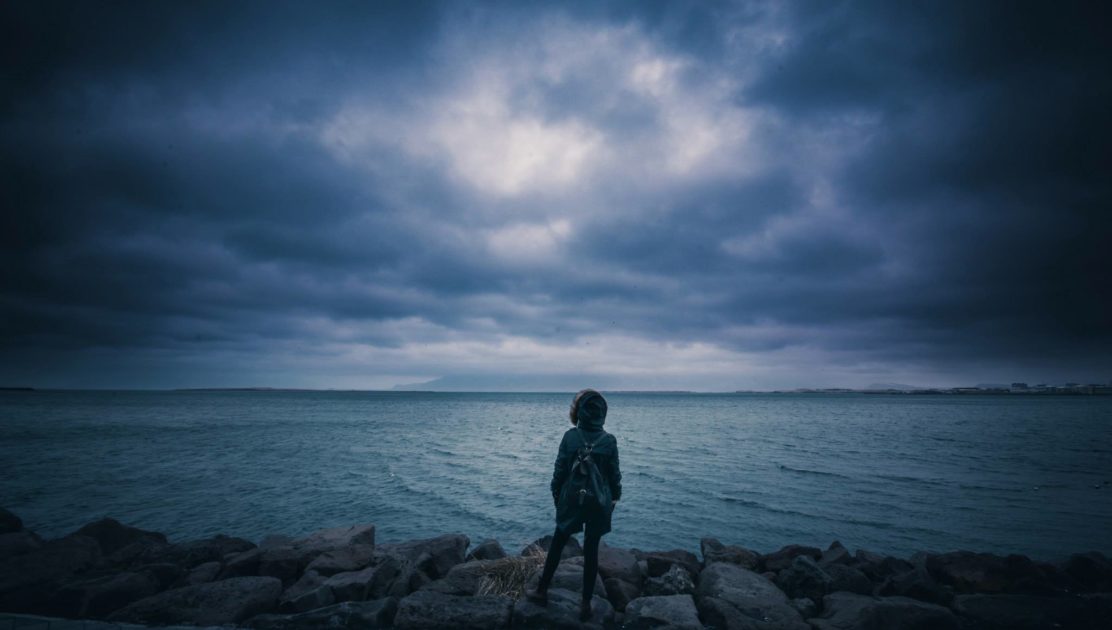The Force of the Storm
Joanna Macy reflects on the impact that Rilke’s poetry has had on her life
By Joanna MacyJoin Joanna Macy and Anita Barrows at “Rainer Maria Rilke and the Force of the Storm,” on September 19-23. Click here for info and to register.
For almost fifty years, since the winter’s day I found it on a table in a Munich bookstore, Rainer Maria Rilke’s Book of Hours has been a cherished companion. My book is the original Insel Verlag edition, clothbound, with Gothic script on soft rag paper, and on the cover the print of the three-jetted fountain the poet had chosen. This pocket-sized volume has traveled with me across the spiritual landscapes of my life—from the rubble of a once-sturdy faith in church and God, into the streets of political activism, and into the Buddha-fields of South and Central Asia.
The first poem I recall reading was as exhilarating to me as the fresh cold alpine wind off the slopes I loved to ski:
I live my life in widening circles
that reach out across the world.
I may not ever complete the last one,
but I give myself to it.
I circle around God, that primordial tower.
I have been circling for thousands of years,
and I still don’t know: am I a falcon,
a storm, or a great song?
I felt a sense of release, as if I had been let out of a cage I had not known I was in. Rilke’s images lent some pattern, even meaning, to a life I thought had failed in its spiritual vocation. Once I had imagined that my journey would be like the Pilgrim’s Progress, where each adventure brings the hero closer to the heavenly city, but the Christian God with whom I had been intoxicated in my teenage years did not survive the theological studies I understood to serve him (and it was a him). When I turned outward, angry and heartsick, to political affairs, I found that I was a failure as an atheist, too, for I could not cure myself of praying to a God I no longer believed in.
Now those same lines, read for the first time on a snow-packed Munich street, shed new light on the patchwork my life had become—marriage, motherhood, abandoned government career, assortment of jobs, studies in art and language. Perhaps, after all, some unknowable center held me in orbit. Rilke reminded me that if my spiritual appetite was greater than the tedious, cramped theorizing of the theologians, so was God. I could almost feel again the sense of belonging and purpose that I thought I had forfeited.
The Book of Hours came with me to Asia, eight years later, when I went to live in India with my young family and the Peace Corps. There, through work with Tibetan refugees, Buddhist teachings entered my life and brought a sense of ease and strength in the patterns they offered for structuring experience—patterns that seemed familiar. Rilke, in The Book of Hours, had expressed the sacred in terms and images I now found central to Buddhist thought, concepts such as “law” and “way” (“du sanftestes Gesetz…”) and images of wheel and net (“You are a wheel at which I stand”; “you dark net threading through us”).
When I first undertook meditative practice, I did not feel a divine presence, an encompassing Other to be held and supported by, which seemed to be there for the young Rilke.
Don’t you sense me, ready to break
into being at your touch?
But gradually over time, as the mind relaxed, capacities bred by my earlier Christian experience resurfaced and infused my understanding of Buddhism. The presence that I became aware of, around and within me, is apprehended through an act of rapt, wordless attention, receptive and probing. And what the presence seems to be is the web itself, the thrumming relationality of all things.
Rilke’s recognition of the reciprocal nature of our relationship with God, and even with life, is itself a poetic and profoundly personal complement to the Buddha’s central doctrine of dependent co-arising. Asserting the radical interdependence at the core of existence, this teaching seemed to me at times a bit abstract, so I loved reading again: “What will you do, God, when I die?”
This sense of reciprocity nourished my engagement in work for social change, and was fed by it in turn. There came a time in the middle and late 1970s when the enormity of what I was discovering as an environmental activist—especially about the widespread, long-term, devastating effects of nuclear power and weapons production—broke through my defenses. I struggled simply to take in what was happening to our world, and to sustain the gaze long enough to be of use. Rilke’s unwhining acceptance of the fact that, yes, a world can die, strengthened me in its straightforwardness and lack of self-pity.

I found that many of my colleagues and fellow citizens were silently suffering and suppressing a similar anguish. Buddhist teachings and my Judeo-Christian roots helped me understand this pain for the world. Rilke helped, too.
You are not surprised at the force of the storm—you have seen it
growing….
Now you must go out into your heart
as onto a vast plain. Now
the immense loneliness begins….
Through the empty branches the sky remains.
It is what you have.
Those lines murmured like mantras in my mind. I felt Rilke helping me face this time of terror and promise, as I moved out into the public arena with a form of group work based explicitly on the extent and depth of our social despair.
Lord, the great cities are lost and rotting.
Their time is running out.
The work I found myself doing helped people overcome denial about the condition of our world. It taught me that understanding our despair, and not shrinking from it, transforms it into strong, connective energy.
That your world is in agony is no reason to turn your back on it, or to try to escape into private “spiritual” pursuits. Rilke reminded me that I had the strength and courage to walk out into the world as into my own heart, and to “love the things / as no one has thought to love them.”
My own stubborn, wild love for the world was summoned, and I learned to recognize it in others, too, in the movements for peace, global justice, and ecological sanity. Rilke confirmed my sense of a deep passion at the core of life itself, which I could come home to, the way sheep come home at nightfall, “the dark bridge thudding.” I could die into that passion, as into a lover’s arms, trusting its ongoingness and its vast sufficient intelligence.
With Rilke I came to see that intelligence—the “play of the powers”—in the simplest of things, to take comfort in the texture of bark, the acorn’s gleaming body, the leaping squirrel. The poet’s images of web and wheel, root and branch, reminded me how the things connect, in interwoven patterns and mutual belonging.
Your wholeness cascades into many shapes.
You run like a herd of luminous deer
and I am dark, I am forest.
Rilke never said that the path to political empowerment lay through darkness, he just said God was there. But he bolstered my conviction that we must go that way in order to break out of denial. Only then can the “play of the powers,” the intelligence of life, work through us, so to heal a broken world.
Adapted from Rilke’s Book of Hours: Love Poems to God translated by Joanna Macy and Anita Barrows.
Image 1: Courtesy of Chris Lawton
Image 2: Courtesy of Lukasz Lada

Rainer Maria Rilke, Joanna Macy and Anita Barrows have been a deep and integral part of my spiritual life for many, many years. Their first translated poem in the Book of Hours ‘struck me so close that all my senses rang with it’. I felt like I had come home and found a true friend who understood me and whom I understood. Every day from 2-14-14 through 2-14-16 I read the daily entry in A Year With Rilke, let it sit in me, and wrote a poem inspired by that reading. I felt even closer to Rilke, Macy and Barrows after this intense experience. I am deeply indebted to Macy and Barrows for their insightful and profound translations of Rilke. Following is a poem I wrote after my first reading of Macy and Barrows Book of Hours.
On Rilke
I can barely imagine his writing room
dark desk, dim light
dark young man…
bent heavy with love
and intensity
penning words
that preceded me by decades
yet seem to be mine.
I read with a devout awe
and a stinging jealousy…
and think that now, having been said,
I cannot drag these words
up from my own anguished soul.
They were taken from me
before I even was…
both riveted
and torn,
grateful and distraught
honoring yet coveting
I know these were my words,
these were my aching soul in Rilke’s tortured web of love
and he pulled them out one deep night
set them down
lifted them up into the holy mist
and I down these many years
anointed by such grace
wander and search and wonder
what words are left for me?
Joanne Adragna Shird
January 1, 2011